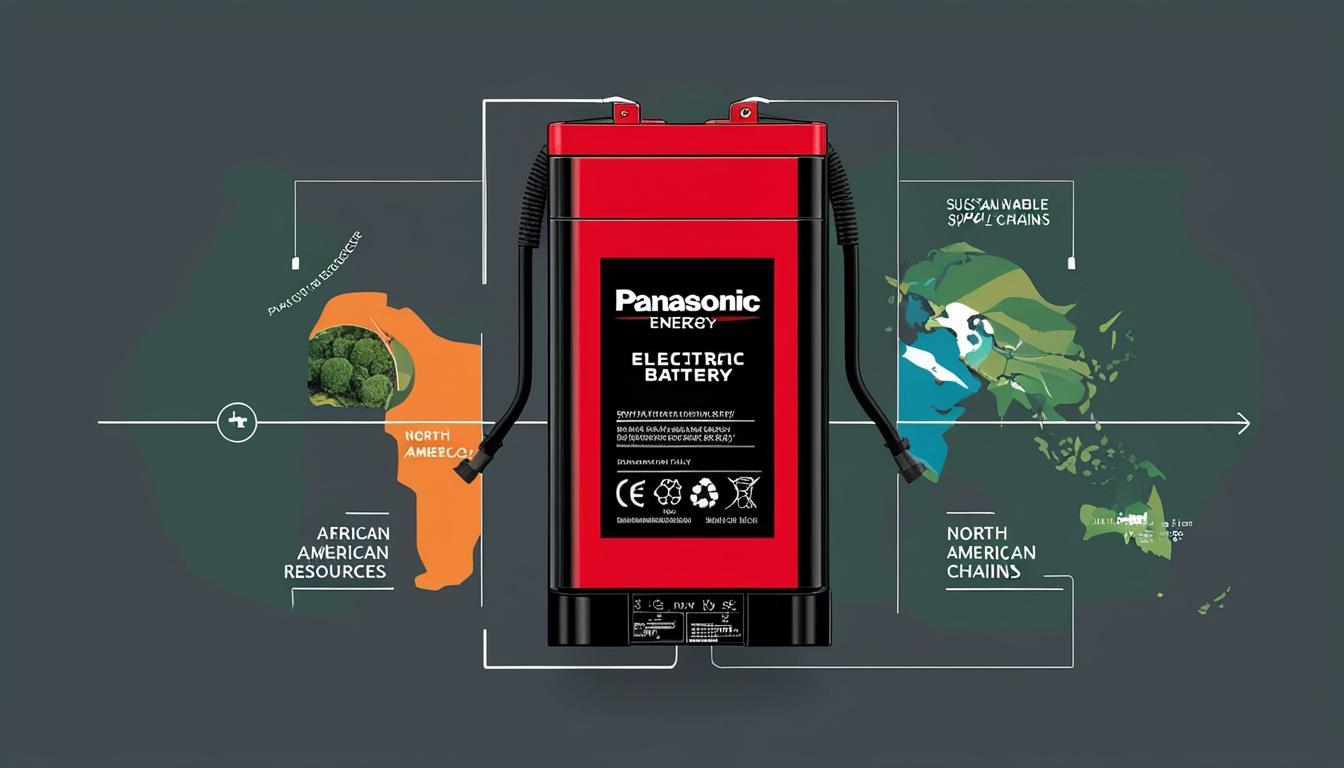Panasonic Energy is undergoing a significant transformation in its supply chain strategy, primarily aimed at reducing its reliance on Chinese materials for the production of electric vehicles (EVs). The company, which plays a crucial role in Tesla's battery manufacturing, is shifting its focus towards African resources and North American suppliers. This decision comes as part of a broader effort to adapt to changing geopolitical landscapes, notably the potential for increased trade tariffs on imports from China.
In remarks made by Allan Swan, president of Panasonic Energy, it was emphasised that the company's main goal is to avoid dependence on Chinese sources moving forward. Swan's statements highlight a strategic pivot that seeks to establish stronger ties with local and regional suppliers, which would help mitigate risks associated with political instability, tariffs, and trade disputes. Swan explained that the evolving global climate necessitated this strategy shift, allowing Panasonic to not only enhance its supply chain resilience but also align with sustainable practices.
The legislative backdrop influencing these shifts includes the Biden Administration’s Inflation Reduction Act, which imposes stringent requirements regarding the sourcing of materials for EV production. This act pushes manufacturers like Panasonic to reorganise their supply chains to ensure compliance with new regulations while pursuing sustainability. The implications of these changes are significant, as the electric vehicle market continues to flourish and necessitate responsible sourcing practices.
Panasonic's revised supply chain approach presents numerous advantages. By localising resources, the company can reduce its exposure to supply chain risks, enhance its sustainability efforts, and simultaneously support local economies. Engaging with suppliers in Africa and North America not only aids in mitigating potential disruptions but also aligns with environmentally responsible practices by minimising the carbon footprint associated with long-distance transportation of materials.
The electric vehicle industry itself is undergoing rapid evolution, characterised by several emerging trends. Notable advancements in battery technology, growing consumer demand for EVs, and a shift in global policies geared towards tightening emissions regulations are all driving manufacturers to innovate and expand production capabilities. As Panasonic refines its supply chain strategy, it positions itself to take advantage of these transformative trends within the EV sector.
However, the path ahead is not without challenges. The development of new supply chains necessitates substantial investments in infrastructure and logistics to ensure efficiency. Furthermore, issues such as political stability and regulation in African regions can complicate the access to crucial minerals. There is also the competitive landscape to consider, where established players with entrenched ties to Chinese sources may make securing contracts and partnerships more difficult for Panasonic.
In conclusion, Panasonic Energy's strategic pivot away from reliance on Chinese materials underscores a broader trend in the electric vehicle industry prioritising resource localisation and sustainability. By focusing on African and North American sources in response to legislative demands, Panasonic enhances its operational resilience and aligns itself with sustainable practices. These strategic changes position the company as a key player in a rapidly evolving market, with the potential to significantly influence the future of electric vehicle manufacturing.
Source: Noah Wire Services
